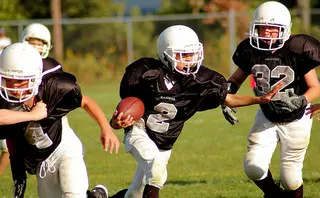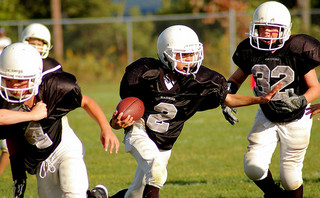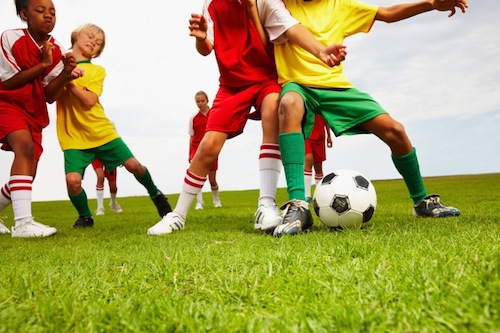
Dec 01, 2021 • 4 min read
How Important Is Winning in Youth Sports?
Posted in:
If you could win every game, would you?
Many athletes would probably say yes. After all, winning feels good! In fact, in some cases, everyone’s allowed to win–though that’s another story. If winning’s so great, does that make losing a terrible experience? Not necessarily. Losing actually provides some lessons that winning cannot, particularly for young athletes.
What are the pros and cons of both winning and losing? Let’s take a look.
The Cons of Winning
 If winning is so great, then where did the phrase “winning isn’t everything” come from? The fact is, if you win all the time, those special feelings you get from winning fade and you lose the drive to get better. It becomes easier to stop learning. Young athletes are more likely to go on autopilot, and that’s when bad habits begin to develop.
If winning is so great, then where did the phrase “winning isn’t everything” come from? The fact is, if you win all the time, those special feelings you get from winning fade and you lose the drive to get better. It becomes easier to stop learning. Young athletes are more likely to go on autopilot, and that’s when bad habits begin to develop.
Constantly winning, or winning early on, can also be detrimental because it may give kids a false sense of their own abilities. Just because a young athlete wins doesn’t mean that he or she is the best. Especially at a young age, we all have a lot to learn.
The Pros of Winning
Though winning might not be everything, it still feels pretty darn good! A win is an easy self-confidence boost, which is a big deal for many young athletes.
Furthermore, winning is validation. A win says that the game has been played the right way and that practice paid off. Winning motivates one to continue playing and continue winning. Also, winning connects good feelings with the sport, which can give your young athlete the drive to keep going. Constant losing, on the other hand, might easily lead to early quitting.
The Cons of Losing
What’s the worst part about losing? Well, that’s an easy question: Losing! No one wants to lose because no one wants to feel bad. And losing constantly has the potential to turn players off from a sport for good.
The Pros of Losing
Sure, losing usually doesn’t feel that great. However, it does build character.
 Dealing with a loss is one of the most important life lessons anyone can learn. Losing a game isn’t the only time players will face defeat, and how they respond and pick themselves back up says a lot about them, both as an athlete and as a person.
Dealing with a loss is one of the most important life lessons anyone can learn. Losing a game isn’t the only time players will face defeat, and how they respond and pick themselves back up says a lot about them, both as an athlete and as a person.
Losing also provides drive and purpose. It makes athletes strive to be better and achieve what they previously couldn’t. Losing forces young athletes to evaluate themselves. The only way to make adjustments and improve performance is by looking in the mirror and fixing what doesn’t work. A loss forces young athletes to look in the mirror far more than a win.
Does winning feel better than losing? Of course it does! Is losing the end of the world? Far from it. Winning isn’t everything, and losing doesn’t have to be, either.
Do you or someone you know need help managing their sports team or club? Sign up for a free 21-day trial today. Or check out our club and league solution, TeamSnap for Clubs and Leagues if your team is part of a larger sports organization.
